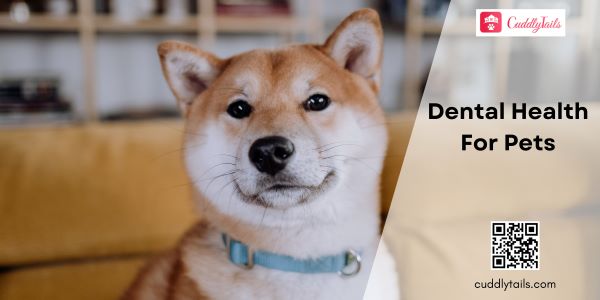Incorporating Dental Care into Your Pet’s Grooming Routine
When it comes to the grooming and hygiene needs of a pet, many pet parents focus primarily on maintaining their furry friend’s coat and skin health. However, one crucial aspect of grooming that is often overlooked is dental care. Just like humans, pets do suffer from dental problems such as plaque buildup, tartar accumulation, and gum disease. Incorporating dental care into your pet buddy’s grooming routine is essential for their overall hygiene and well-being.
Why Dental Care is Important for Pets
Proper dental care is vital for pets’ health for several reasons:
Prevents Dental Diseases
Regular dental care helps prevent common dental issues such as plaque buildup, tartar accumulation, gingivitis, and periodontal disease. These conditions can lead to pain, loss of tooth, and even systemic health problems if left untreated for a longer time.
Promotes Fresh Breath
Good oral hygiene keeps your pet’s breath smelling fresh with a great smile. Dental disease can cause foul odor breath, which can be unpleasant for both you and your furry kid.
Improves Overall Health
Dental diseases also affect other organs such as the heart, liver, and kidneys. By maintaining good oral health, we can help in preventing potential health problems in other parts of the little buddy’s body.
Incorporating Dental Care into Your Pet’s Grooming Routine
Integrating dental care into your pet’s grooming routine doesn’t have to be difficult. With a few simple steps, you can help keep your pet’s teeth and gums healthy:
Brushing Your Pet’s Teeth
Regular brushing is the most effective way to prevent plaque and tartar buildup on your pet’s teeth. Use a soft-bristled toothbrush and pet-friendly toothpaste to brush your pet’s teeth at least two to three times a week. Here’s how to do it:
- Starting slowly and gently introducing the pet to the toothbrush and toothpaste is the key to making the pet comfortable with brushing.
- Lifting your pet’s lips and brushing their teeth using circular motions, focusing on the outer surfaces of the teeth where plaque tends to accumulate.
- Being patient and positive during the process, and rewarding your pet with treats or praise afterward is always recommended.
Providing Dental Chews and Toys
Dental chews and toys can help reduce plaque and tartar buildup by promoting chewing and saliva production. Look out for products that are specifically designed to improve dental health, such as dental chews with ridges or toys with textured surfaces.
- Offering dental chews or toys to your pet regularly, preferably after meals or as a snack between meals can help prevent bad odor too.
- Choose products that are appropriate for your pet’s size and chewing habits, and supervise them while they chew to prevent choking or ingestion of large pieces.
Feeding Dental-Friendly Diet
Some pet foods are formulated to promote dental health by reducing plaque and tartar buildup. Look for dry kibble designed to support dental health, such as those with added ingredients like enzymes or abrasive textures made to clean and keep dental hygiene.
Consult with your veterinarian to determine the best diet for your pet’s dental health needs, taking into account factors such as age, breed, and existing dental issues to make your little one healthy and happy.
Regular Veterinary Check-ups:
Regular dental examinations by a veterinarian are essential for maintaining your pet’s oral health. During these check-ups, your veterinarian will assess your pet’s teeth and gums for signs of dental disease and recommend any necessary treatments, such as professional dental cleanings or extractions.
- Scheduling dental checkups every 6 months or annually for your pet, depending on their age and overall health can be quite helpful in maintaining dental hygiene.
- Following your veterinarian’s recommendations for preventive care and treatment to address any dental issues promptly.
We know visiting a vet isn’t always possible. Therefore, to solve this problem, we have launched our 24/7 online vet care service. Read more about it here.
Conclusion
Incorporating dental care into your pet’s grooming routine is essential for their overall health and well-being. By brushing your pet’s teeth regularly, providing dental chews and toys, feeding a dental-friendly diet, and scheduling regular veterinary check-ups, can help prevent dental diseases and keep your pet’s smile bright and healthy. Remember that good oral hygiene is just as important for pets as it is for humans, so make dental care a priority in your pet’s grooming regimen. Your pet will thank you with fresh breath and a happy, healthy smile!
Check out this blog to learn more about lumps on dogs and what to do if you find them.

